Physical Address
304 North Cardinal St.
Dorchester Center, MA 02124
Physical Address
304 North Cardinal St.
Dorchester Center, MA 02124
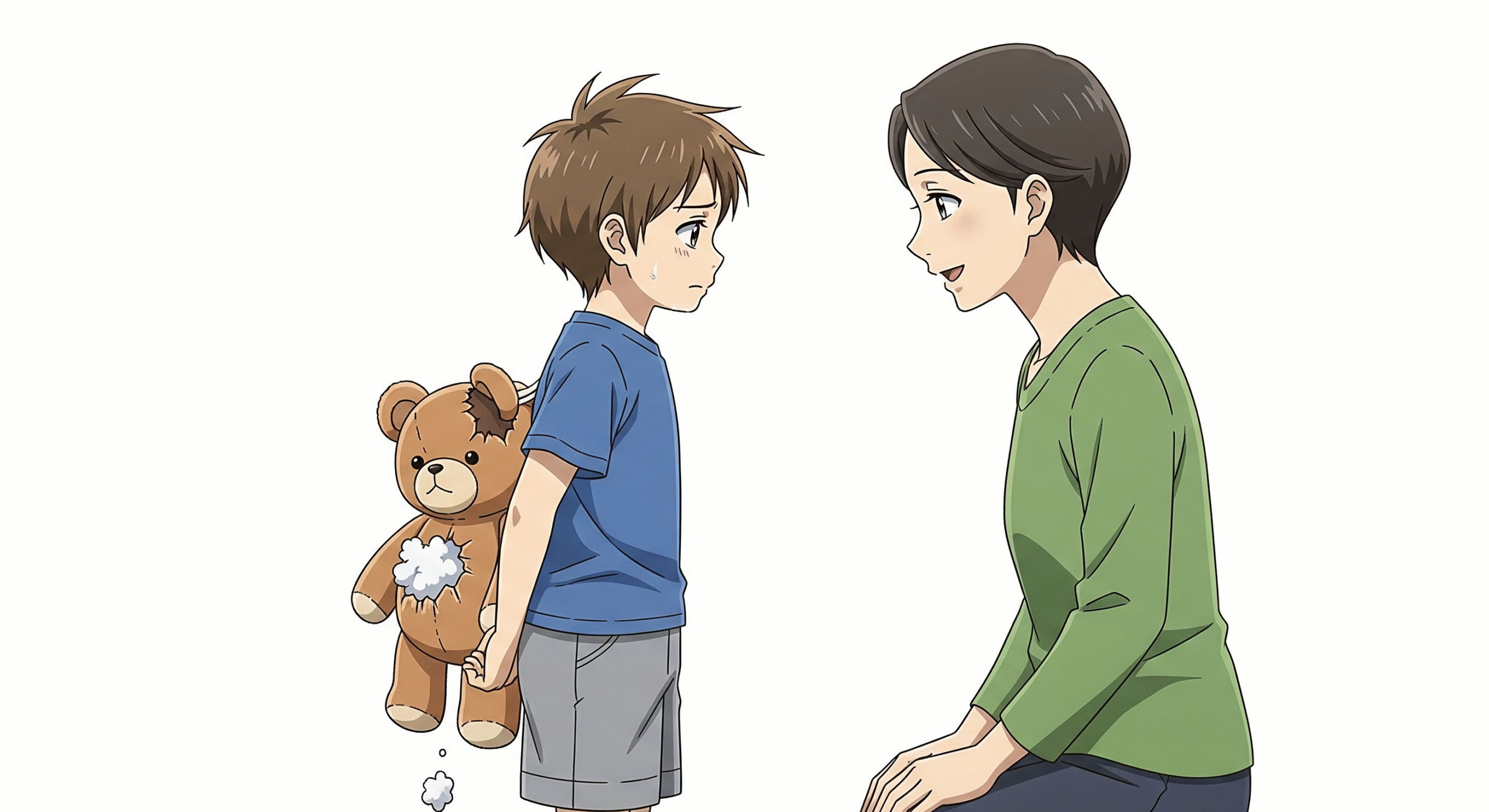
There are many parenting phases you expect. The sleepless nights, the toddler tantrums, the endless negotiations over screen time. Our six-year-old has been a master of many of these, he can be annoying, a persistent nagger, and would happily spend his entire life watching TV if we let him. But through it all, he’s generally been an open book. When we asked him about things, we could usually count on getting the truth.
But recently, I’ve started noticing small changes.
It began subtly. A new reluctance to tell us what happened during his day, or a tendency to brush things away with a quick, “Oh, nothing happened.” Initially, we didn’t read too much into it. But this small thing is starting to grow, and it’s become clear that this isn’t something we should let fester, just in case it develops into something bigger.
Let me give you an example of what happened just the other day.
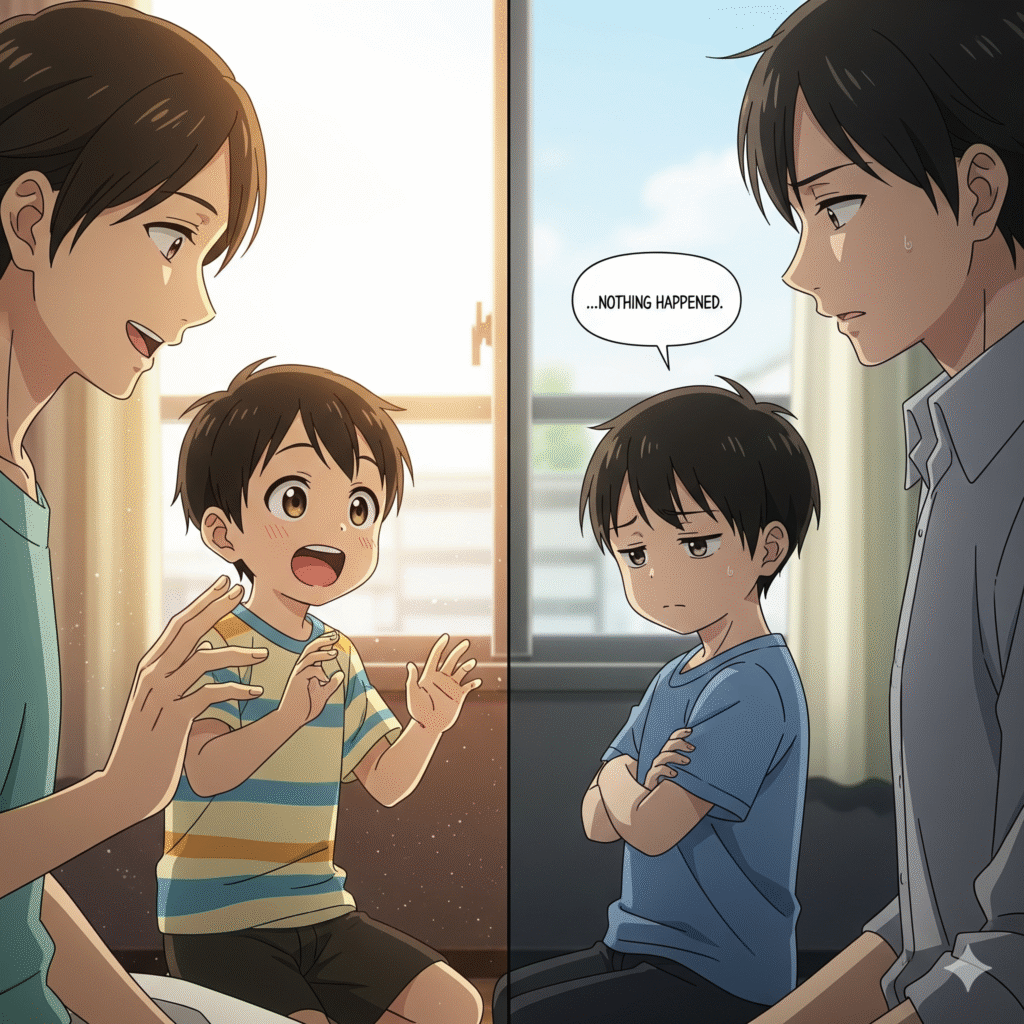
Both kids, our three-year-old and six-year-old, had just been picked up and came tumbling through the door. As is their bizarre daily ritual, they were immediately rushing to wash their hands and use the toilet, and a fight broke out over who would go first. It’s usually a little amusing to watch this mad dash unfold.
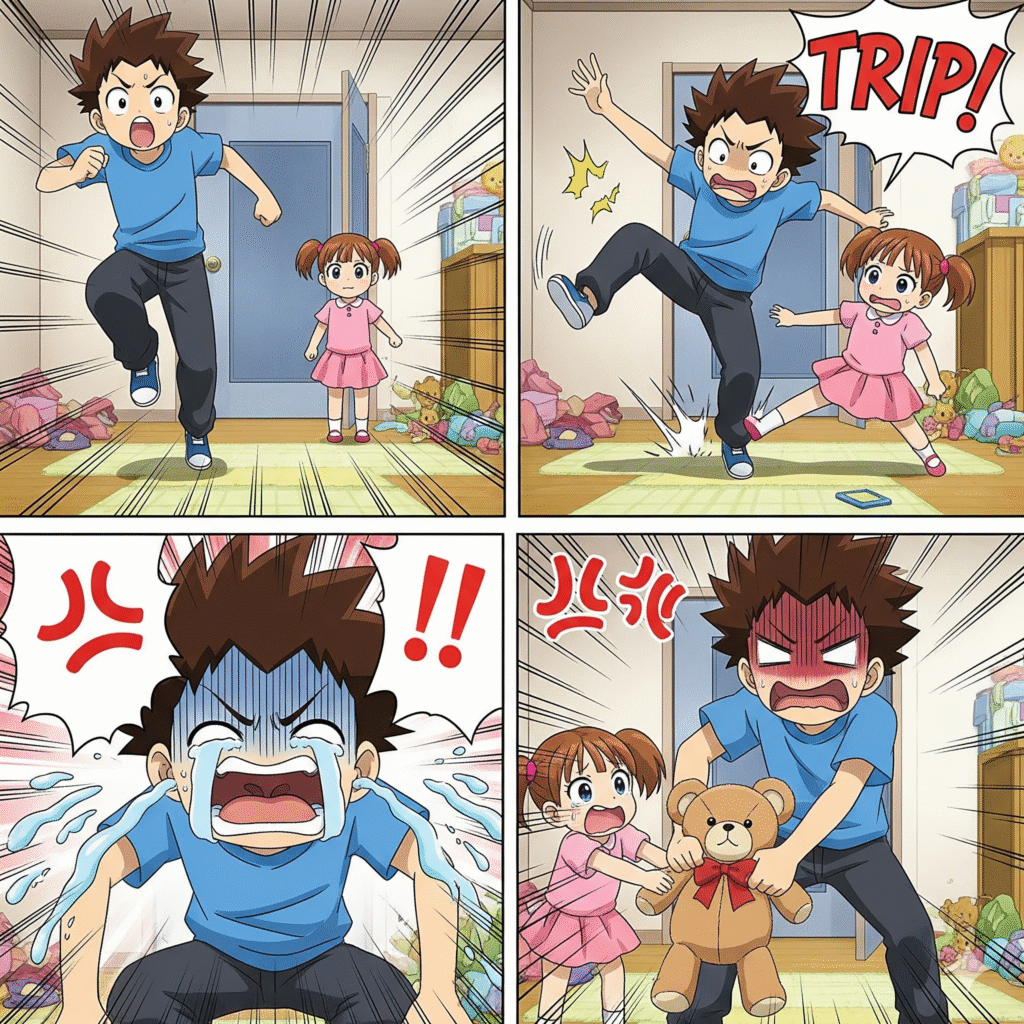
Generally, after a bit of playful pretending, we let our three-year-old go first, for obvious reasons. But on this particular day, the scuffle was a bit more intense than usual. In the chaos, our six-year-old tripped over his little sister’s legs, fell to the ground, and hurt himself a little.
He cried for a bit and got quite emotional. To be honest, he didn’t look that hurt, but whether it was tiredness from a long day at school or something else, he got really upset. He screamed at his sister a bit, got a little physical, but we told him to stop it, and while he did stop, his face showed he was still angry.
And then he decided to retaliate further. He marched over, took one of his younger sister’s favourite toys, and with a look of pure frustration, tried to pull it apart.
Now, the funny thing is, from where I was standing, I saw the whole incident unfold. I saw him trip as he tried to rush past his sister. It was an accident, and while her leg was in the way, he was just as much at fault for not looking where he was going.
I also saw him grab the toy. I didn’t intervene immediately. Instead, I watched for a few moments to see what his intention was. He continued to pull and yank at it, clearly trying to break it in his frustration.
“What are you doing with that toy?” I asked calmly.
He immediately quieted down and stopped pulling, but he kept a tight grip on it. “I’m not doing anything,” he mumbled, avoiding my eyes.
I knew for a fact he was trying to break it. I decided to press a little. “I saw what you were doing,” I said, my tone a little more forceful this time. “What were you trying to do with it?”
He still tried to deny it, muttering that he didn’t do anything as he slowly started to put the toy down. I could see it on his face, he knew he’d been caught, but he was absolutely determined not to admit it out loud.
Seeing his reluctance, I asked him one final time to come clean and explain what he was doing. He started to squirm a little, shifting his weight from one foot to the other. But in the end, all I got was silence. He didn’t say another word, but he did put the toy back.
At this point, I knew I wasn’t going to get a confession. So, I told him that I had seen everything and asked him why he didn’t just tell the truth. Again, his only response was a wall of silence. Realising I wasn’t going to get much more out of him right then, I told him to go and stand in the corner and think about what he did wrong, and to come and tell me once he had figured it out.
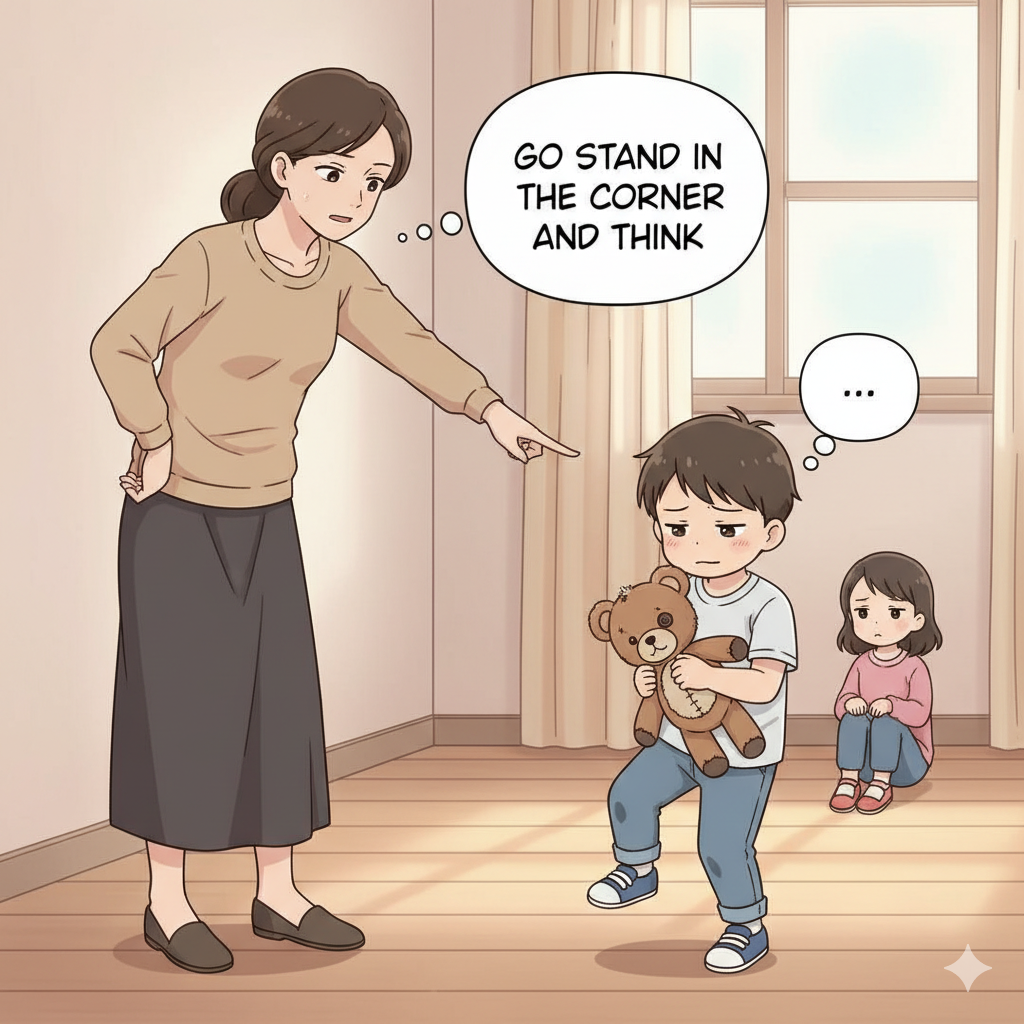
As he stood in the corner, my mind started racing. I can guess why he was silent. He probably thinks that by not admitting to anything, he can get away with it or at least receive a lighter punishment (which usually consists of standing in the corner, or no treats or screen time for a period).
What really got me thinking, though, was why he would think like this and where he might have learned it from.
He wasn’t telling a blatant, outright lie, I guess. He was using silence and a bit of evasive mumbling to pretend like nothing happened. But in my books, that’s still not good behaviour. This is exactly the kind of thing I want to try and nip in the bud early, rather than letting it carry on and potentially get worse in the future.
To help better understand why it might have happened, I need to give you a little context on how we handle things in our house.
A Little Context – Our “Carrot and Stick” System
We generally use a “carrot and stick” approach to discipline. When the kids do something good, like helping to clean up, proactively doing some reading, or helping out with other little things, we use the carrot. This “carrot” might be a small treat like a lolly or a snack they enjoy. Other times, it’s an activity they love, like a bike ride or, the most coveted prize of all, some screen time. It’s a simple system of positive reinforcement.
On the flip side, when they do something naughty or get in trouble, the “stick” comes out. This means there are no more treats for the day. We also take away their rights to the TV and other screens. If they do something particularly bad, we’ll ask them to stand in a quiet corner to calm down and reflect. Depending on the severity of the “crime,” this could be for a few minutes or a bit longer. Consider it a light punishment that hopefully helps them to remember what they did wrong.
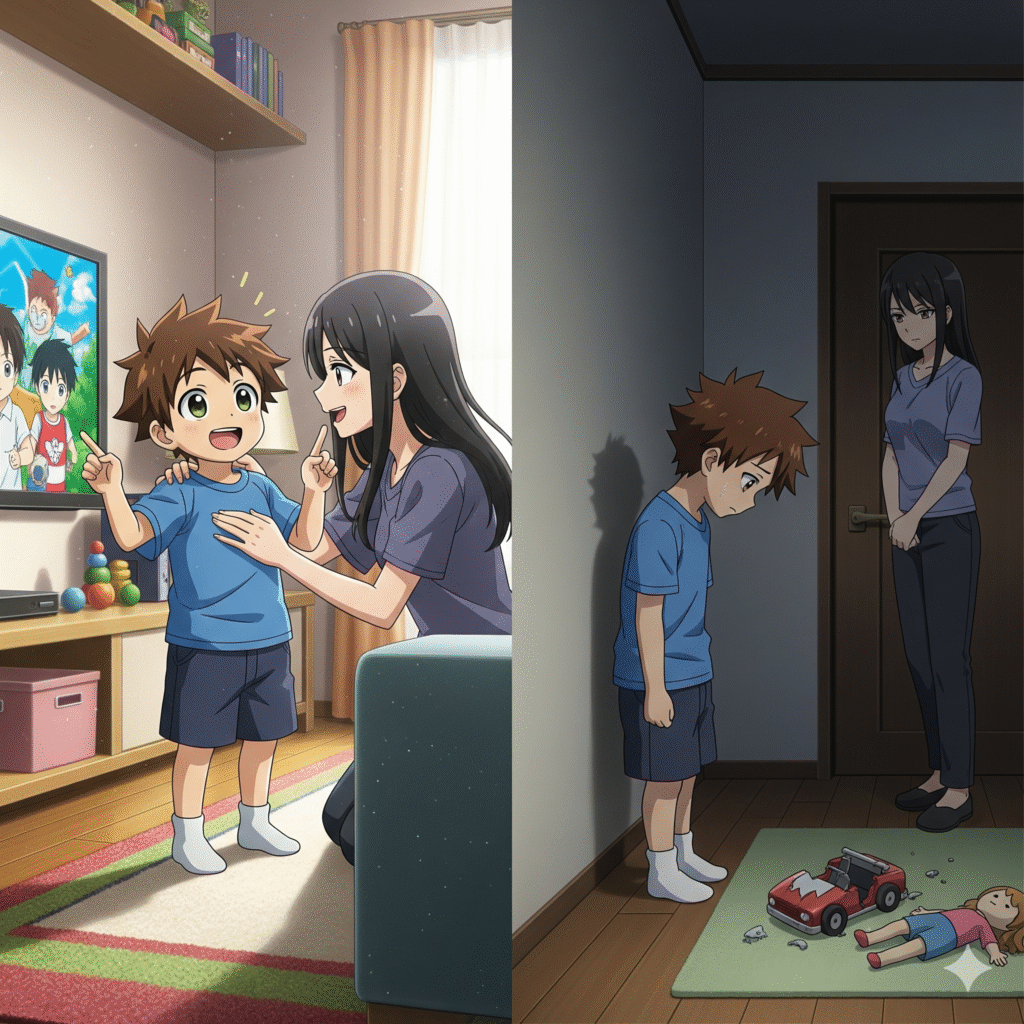
Connecting the Dots
So, with that in mind, I’m assuming our six-year-old clammed up because he was afraid of the consequences. He knew what he was doing was wrong, and he didn’t want to get in trouble, lose his screen time, or be told to stand in the corner. By not admitting anything, perhaps he hoped he could get away with it and avoid the “stick.”
But still, in this instance, what bothered me was that he knew he had done something wrong and actively chose not to own up to it.
He wasn’t telling a blatant, outright lie, I guess. He was using silence and a bit of evasive mumbling to pretend like nothing happened. But in my books, that’s still not good behaviour. This is exactly the kind of thing I want to try and nip in the bud early, rather than letting it carry on and potentially get worse in the future.
So, what happened next? Yes, he stood in the corner. Whether he thought he was going to get away with it, I’m not sure. Do I think he truly reflected on the philosophical differences between right and wrong, no probably not, but he is only six. He’s going to find it hard to control his emotions sometimes, and this is where we as parents come in, to help them reflect and understand.
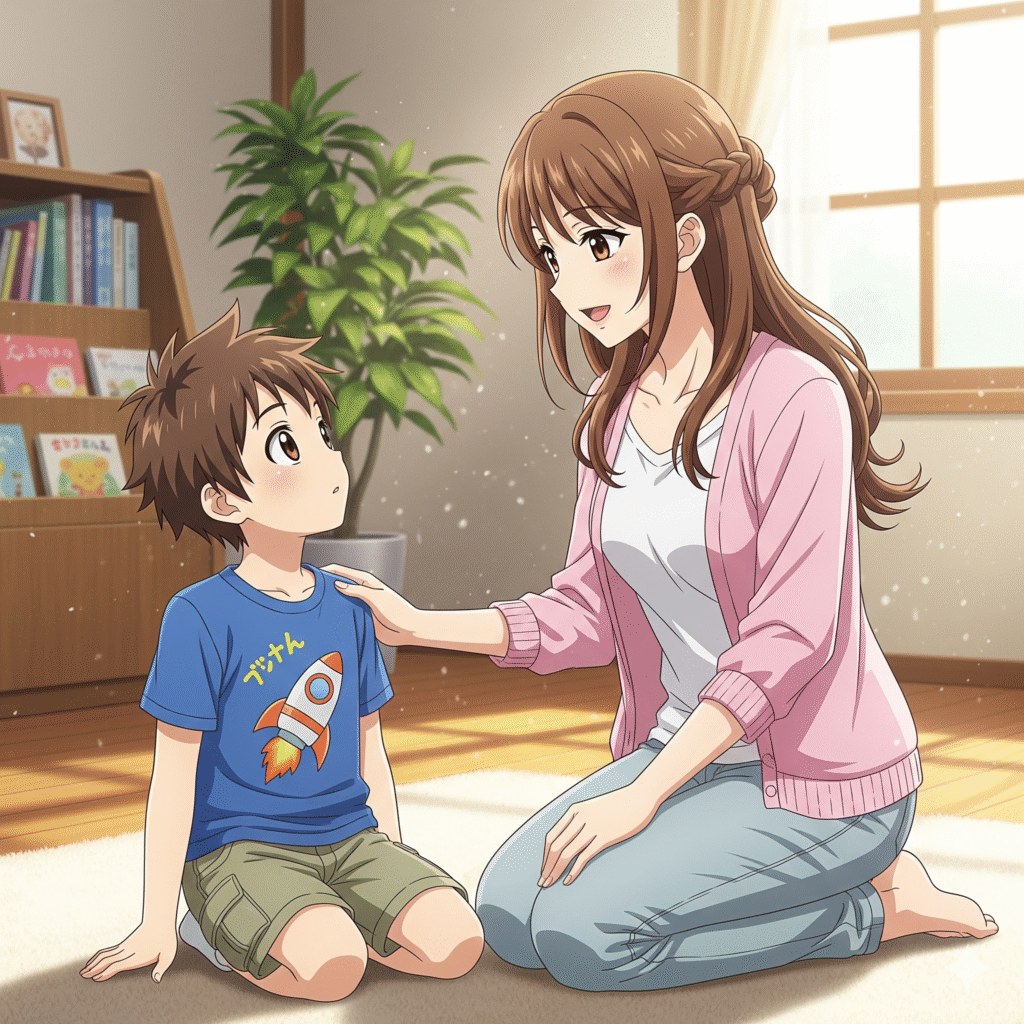
The next day, I reminded him that trying to break his sister’s toys wasn’t the best way to handle his frustration. I suggested that next time, he could tell one of us, or even try to tell his sister not to do it again (though I silently acknowledged that negotiating with a three-year-old is a fool’s errand). Also, get the idea into his mind that besides breaking things, there are other ways to solve the problem.
For me, moments like these are all teaching opportunities. Kids will make a lot of mistakes. Our job is to help them learn from those mistakes so they don’t make them over and over again. This is our biggest gift to them, helping them learn so they can forge their own path forward.
Based on this and other adventures in parenting, here are a few tips that we try to stick to.
1. Keep Calm and Level-Headed Was I disappointed that I saw my son being dishonest? Absolutely. But I knew getting angry at him in that moment wasn’t going to solve anything, in fact it would probably make things worse. It’s crucial to keep calm, take a few deep breaths, and then work through how to deal with it. Reacting in anger rarely helps, and don’t do anything you come to regret. Slow, deep breaths!
2. Talk It Out (When the Dust Settles) In the heat of the moment, with emotions running high, it’s likely nothing you say will get through. Afterwards, once everyone is calm, take a quiet moment to pull them aside. Gently but firmly remind them that what they did was wrong and, more importantly, why it was wrong.
3. Use the ‘Role-Swap’ Technique This is a technique I use often. I ask him to think through the consequences. “What would have happened if you broke her toy?” Yes, she would have been upset. “But do you really want your sister to be upset?” In the spur of the moment, maybe. But after he’s calmed down, he knows he loves his sister. Then, I ask him to swap roles. “How would you feel if she broke one of your favourite toys?” This helps build empathy and reflection, both hugely useful skills for their path ahead.
4. Encourage Apologies and Reconciliation Finally, I get both kids to apologise to each other. Whether they truly mean it in that exact second, I don’t know. But what they are learning is that they are brother and sister, and it’s on them to work through their wrongs and sort things out. The goal isn’t to have a winner and a loser; it’s to aim for a “win-win,” where they both understand and move on together.
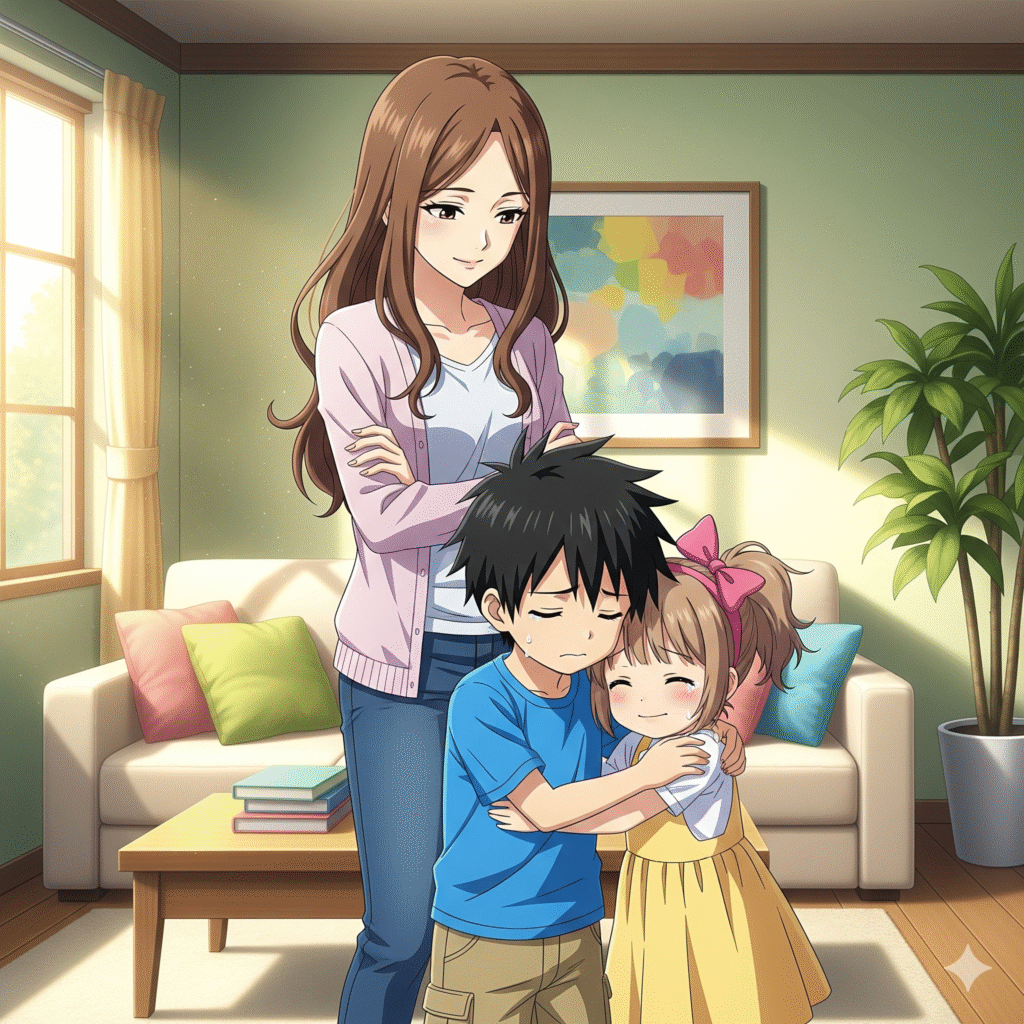
So, that’s the story of how we handled this particular incident. I’m not entirely sure if it was the best way to go about things. Looking back now, a part of me wonders if I should have pressured our six-year-old a bit more to get him to verbally admit what he did was wrong. But at the time, given the situation, it felt sufficient. And sometimes, with kids, while we don’t want them wrapped in cotton wool, we can’t be too hard on them either. Some gentle pushing and prodding can have a better impact.
This is one of those tricky parenting crossroads, and it’s where hearing from other parents is so valuable.
What are your thoughts? Do you think we handled it the right way? How would you have approached it, and do you have your own hints and tips for navigating these first forays into dishonesty? We would genuinely love to learn from your experiences.
Please share your wisdom in the comments below.